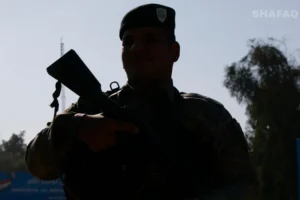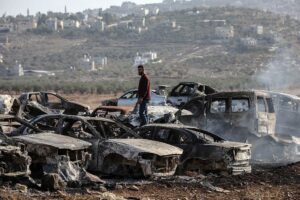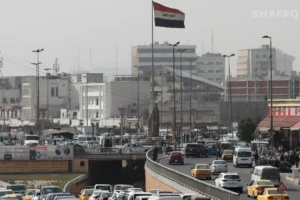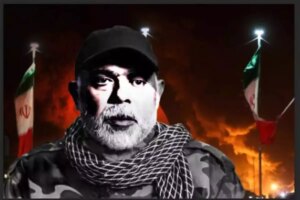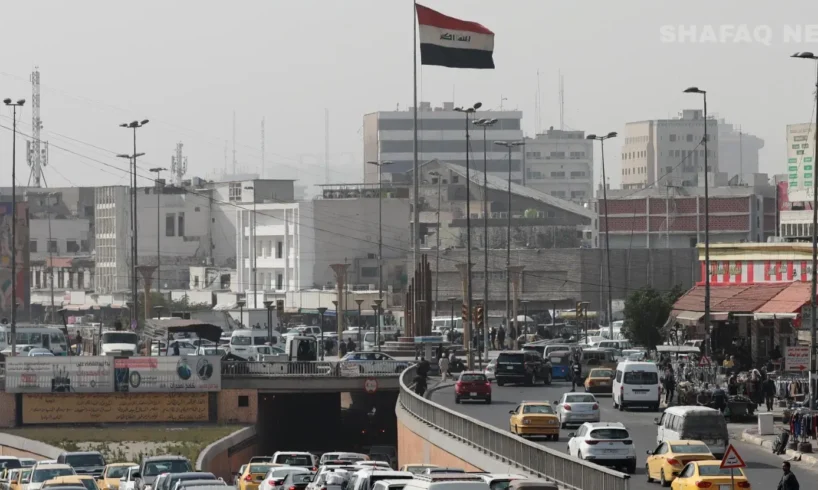
Shafaq News
Iraq’s newly elected parliament has stepped into an unfamiliar political
era where forming a government is no longer a predictable post-election ritual,
but a test of how far the country’s competing forces can stretch their
alliances without snapping them.
The final numbers released by the Independent High Electoral Commission
(IHEC) redrew the map: Shiite parties now hold 187 seats, Sunnis have climbed
to 77, and Kurds secured 56. The shift stripped Shiite blocs of the dominance
they once relied on, turning the selection of the president, parliament
speaker, and prime minister into a race shaped by cross-component bargaining
and constant recalculation.
Legal expert Salem Hawas, speaking to Shafaq News, described the new
balance as a game-changer. With Sunnis and Kurds holding together roughly
one-third share, Hawas viewed their weight as a “guarantee and veto” over all
three presidencies — and even over the Coordination Framework, the largest
Shiite bloc responsible for naming the prime minister.
“Shiite blocs can no longer act alone and must now seek consensus with
other components,” he observed, stressing that every step of this process now
requires navigating Sunni, Kurdish, and Shiite demands simultaneously.
In another assessment, Haitham al-Heeti, professor of political science
at the University of Exeter, said the election results “do not grant any side a
sweeping mandate.”
Speaking to Shafaq News, al-Heeti added that the outcome reflects a
“fragmented parliament with dozens of small blocs,” warning that the next
government will require broad bargaining. “Despite leading the results,
al-Sudani will need to align with many smaller groups with differing agendas,”
he said, a reality that deepens the complexity of the coming negotiations.
Read more: Post-election vacuum freezes Iraq: Government formation, economic woes top agenda
Presidency Auction Opens
Even though Iraq’s presidency carries limited executive power, the post
is far from symbolic inside Kurdish politics. Following the nation’s
power-sharing formula, the position traditionally goes to the Kurdish component
and, since 2003, has been held by the Patriotic Union of Kurdistan (PUK). The
Kurdistan Democratic Party (KDP) continues to challenge that claim, keeping the
rivalry alive.
Inside the Kurdistan Region, power is split between the two main Kurdish
parties. The KDP controls the Region’s presidency and the prime minister’s
office, while the PUK holds the Iraqi presidency along with the deputy
premiership in the Region.
This balance of influence makes the fight over Baghdad’s presidency not
just a national contest, but a negotiation shaped by Kurdish internal politics,
where any candidate must first secure Kurdish understanding before seeking
broader approval from the Shiite and Sunni blocs.
Complicating matters further, the presidency requires two-thirds of
parliament in the first round — a threshold nearly impossible without
multi-component consensus. If no candidate reaches that number, the process
moves to the second round, where competition becomes sharper. Analysts warn
that repeated failed sessions could force Kurdish parties to compromise or risk
losing the post to a consensus candidate backed by non-Kurdish blocs.
If one component — typically Sunnis or Shiites — refuses to attend the
voting session or votes against all Kurdish candidates:
-Parliament cannot elect a president, halting the entire government
formation timeline.
-Kurds would be forced to either unite behind a single candidate
(PUK–KDP compromise) or accept a “consensus Kurdish figure” palatable to other
components.
In extreme deadlock, non-Kurdish blocs could impose a neutral Kurdish
technocrat, a scenario feared by both PUK and KDP.
Unity Is Fiction?
The speakership traditionally belongs to the Sunni component, and the
post has become the center of an increasingly tense contest. After the
elections, Sunni blocs tried to consolidate their weight by forming the
National Political Council (NPC) — an umbrella framework meant to unify major
Sunni players in the same way the Coordination Framework operates among the
Shiites.
The NPC brings together a wide range of Sunni forces. It includes the
Taqaddum Party (Progress) led by former Speaker Mohammed Al-Halbousi, the
Al-Azm Party (Determination) led by Muthanna al-Samarrai, the Sovereignty
Alliance (Al-Siyada) headed by Khamis al-Khanjar, as well as the Al-Hasm
National Alliance and the Al-Jamaheer Al-Wataniya Party.
However, the appearance of unity has not erased long-standing rivalries.
Taqaddum emerged from the elections as the largest Sunni bloc with 27 deputies
and is pushing aggressively to reclaim the speakership. But not all Sunni blocs
support this. Al-Azm, which secured 15 seats and has often clashed with
Al-Halbousi, remains a major obstacle.
The path to electing a speaker is even more complicated under the new
parliamentary arithmetic. The speakership requires an absolute majority — half
plus one of the total members of parliament. In a fragmented assembly, failing
to secure 165 votes could delay the first parliamentary session or force Sunni
blocs into last-minute compromises that reshape the distribution of committee
chairs and ministerial portfolios.
If the Sunni component fails to agree on a single speaker:
-Parliament cannot begin normal legislative work, and the presidency
vote may be delayed.
-Other components — Shiites and Kurds — cannot constitutionally impose a
speaker from outside the Sunni community, even if they hold the votes.
The likely outcome becomes a forced Sunni–Sunni compromise, or a return
to the model used in 2018 and 2022: a cross-component deal in which the CF and
Kurdish blocs push Sunnis toward a single acceptable choice.
If Sunni rivalry deepens, some blocs may try to bring a surprise Sunni
candidate supported by non-Sunni forces, but this risks political backlash
across the Sunni street.
Read more: Sunni forces defy expectations with new National Political Council
Where the Real Battle Begins
The most consequential fight is unfolding inside the Shiite arena, where
the battle for the prime minister’s chair is dividing the very coalition that
holds the right to nominate the next premier.
The Shiite CF remains the largest bloc in parliament with 187 out of 329
seats, giving it the authority to put forward the next prime minister. But the
CF is split between supporters of a second term for caretaker Prime Minister
Mohammed Shia Al-Sudani and those pushing for the return of former Prime
Minister Nouri Al-Maliki, who enjoys strong backing from Iran.
The IHEC results deepen this internal conflict. Al-Sudani’s
Reconstruction and Development Coalition (Al-Ima’ar wal-Tanmiya) emerged as the
largest individual bloc with 46 seats. Behind it came Al-Maliki’s State of Law
Coalition (E’tilaf Dawlat al-Qanoun) with 29 seats, followed by Sadiqoon led by
Qais al-Khazali with 28, the Badr Organization headed by Hadi al-Ameri with 21,
and Ammar al-Hakim’s National State Forces Alliance (Quwa al-Dawla
al-Wataniyah) with 18.
None of these forces — independently or collectively — can push a
candidate through without negotiating with the others. The path to the
premiership remains uncertain, and the deadlock inside the CF has turned the
process into the most critical obstacle in forming the next government.
Overlaid onto this internal struggle is the broader geopolitical competition:
both the United States and Iran maintain strong interests in who becomes Iraq’s
next prime minister, shaping behind-the-scenes calculations even when not
openly expressed.
If Sunnis or Kurds reject the CF’s nominee, they can delay the
parliamentary session, preventing a vote of confidence. In addition, they can
refuse to support the government program, depriving the PM-designate of
legitimacy.
Therefore, they can negotiate for: key ministries, budget guarantees,
federal–regional arrangements, and security portfolios.
Read more: Five contenders eye Iraq’s top post: PM selection looms
Can Sunnis or Kurds bring their own candidate?
No — the PM must come from the Shiite component. But politically, they
can force the CF to drop its nominee, demand a compromise Shiite figure, push
for a “technocratic Shiite” acceptable to all components, threaten to form a
State Administration 2.0 mega-coalition.
This dynamic is not new. Iraq has faced similar paralysis before, most
notably in 2022 when prolonged deadlock pushed all components to form the State
Administration Coalition (SAC).
They:
-Agreed on Mohammed Shia al-Sudani as PM
-Divided ministerial portfolios among them
-Committed to a joint agenda
-Mechanically pushed the government through
Analysts see two possible triggers to repeat this scenario
-If no component can impose its candidate and the paralysis drags on,
parties may revive a “grand bargain” similar to SAC, choosing a consensus
Shiite PM, a mutually agreed Sunni Speaker, and a Kurdish President.
-If US–Iran competition remains controlled, both may quietly support a
broad stabilizing formula rather than prolonged deadlock.
In a fragmented parliament, SAC-like coalitions become not the exception
but the necessity.
Bargaining, Not Dominance
The emerging picture is a political landscape layered with intersecting
demands, shifting alliances, and parallel rivalries within each component.
Every bloc — Shiite, Sunni, and Kurdish — holds enough seats to block decisions
but not enough to impose its own. Every actor is negotiating outward and inward
at the same time.
This dynamic becomes sharper when considering constitutional thresholds.
The presidency requires two-thirds of parliament — meaning failure to reach
consensus could stall the process for weeks, pushing parties into emergency
negotiations or forcing them to settle for compromise figures. The speakership,
requiring an absolute majority, could also face repeated failed rounds if Sunni
divisions persist. In both cases, analysts warn of scenarios where parliament
remains open but unable to elect its leadership, delaying government formation
and heightening external pressure.
Iraq is not just electing the next president, speaker, and prime
minister. It is navigating the start of a political era built on bargaining,
equilibrium, and unavoidable compromises — one where international actors,
especially the US and Iran, quietly weigh on the balance as parties search for
a formula that avoids paralysis and preserves stability.
Read more: Unsettled victory: Al-Sudani between a second term and Shiite power balances
Written and edited by Shafaq News staff.


